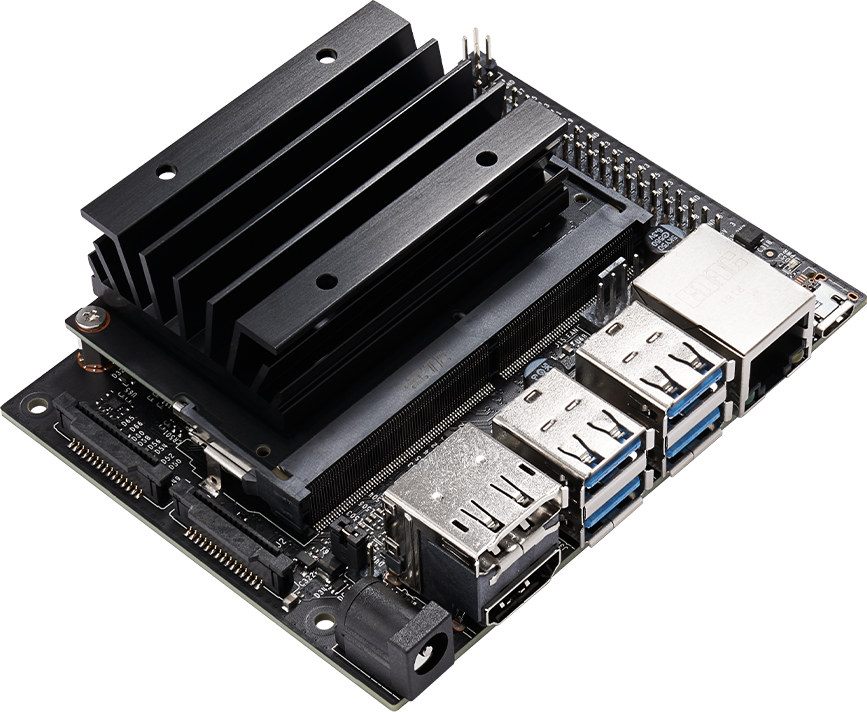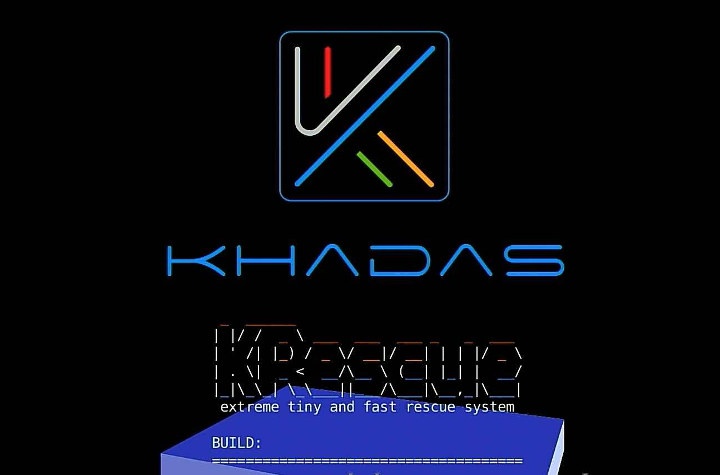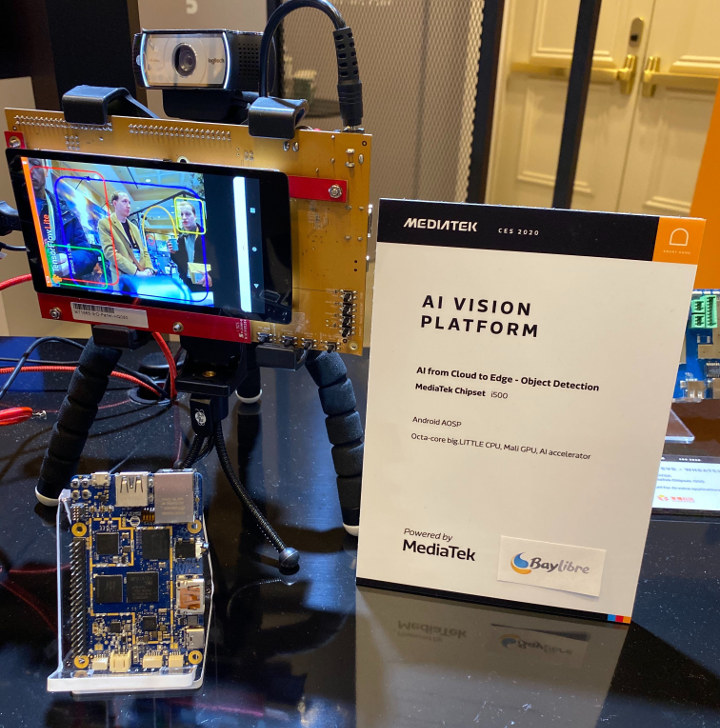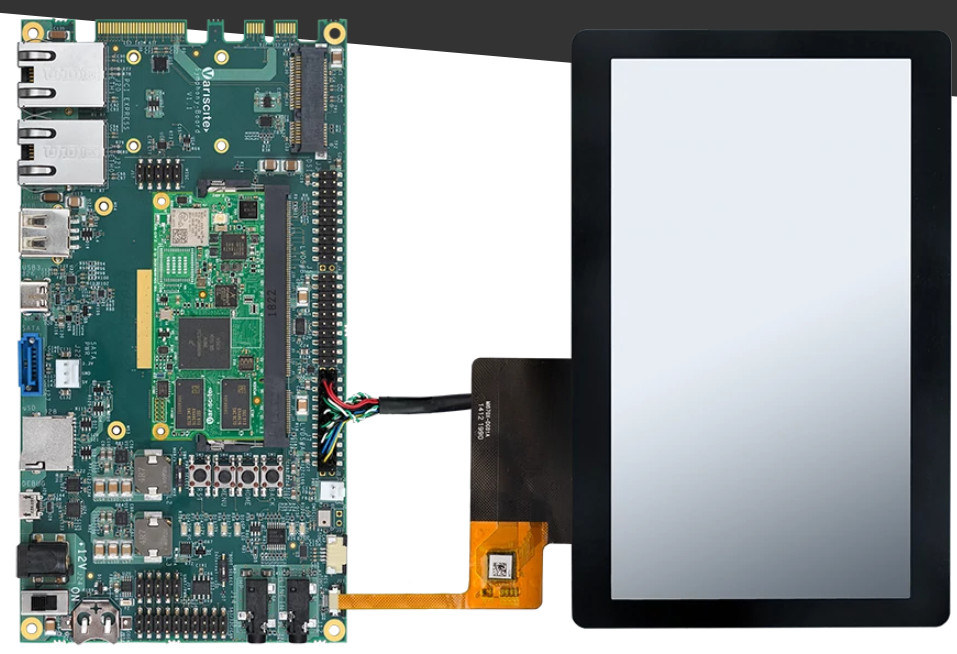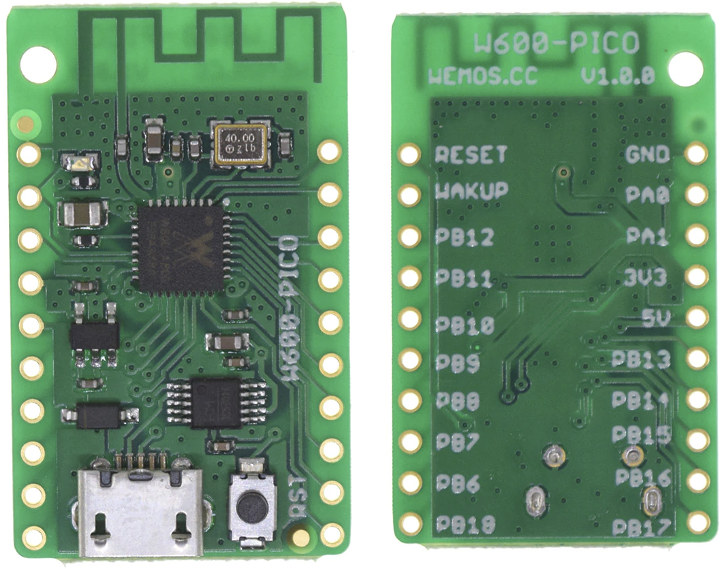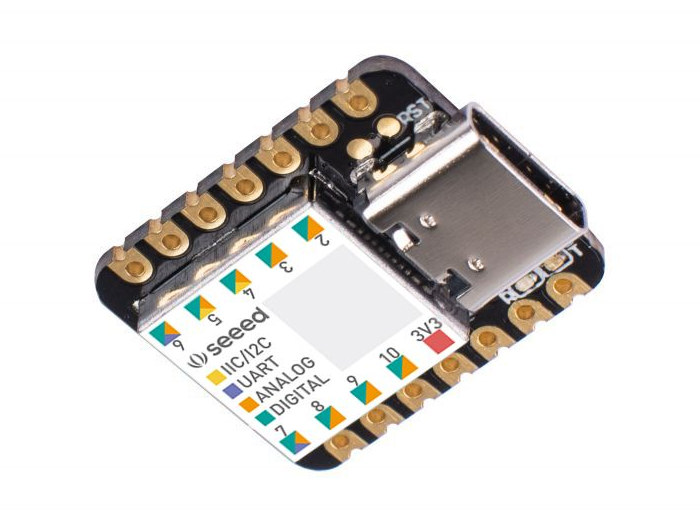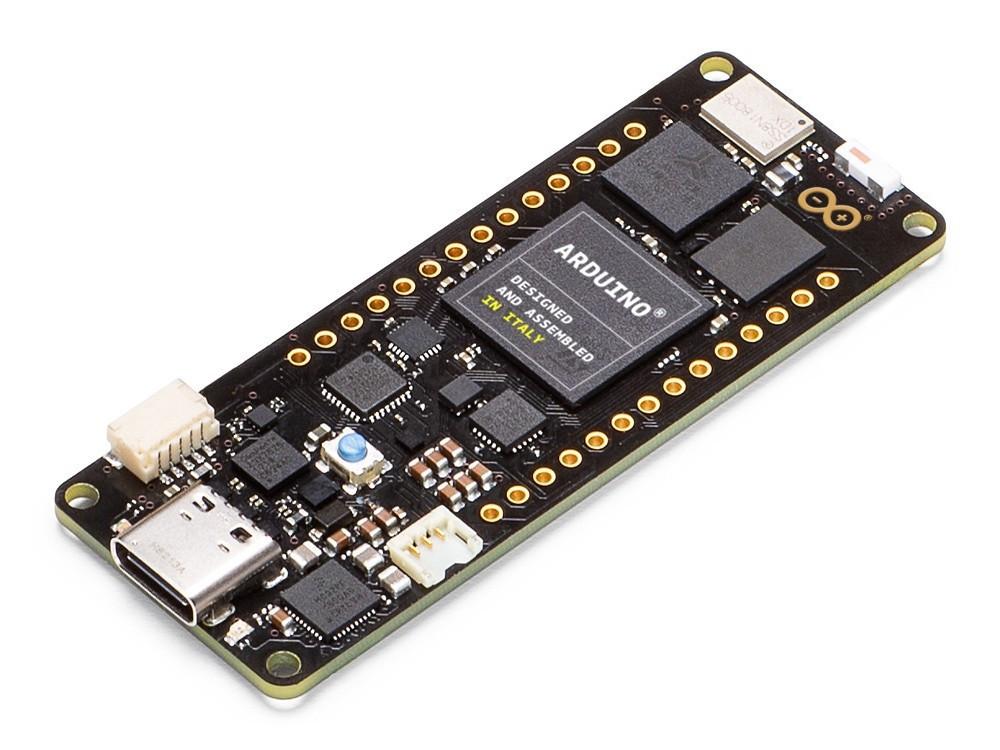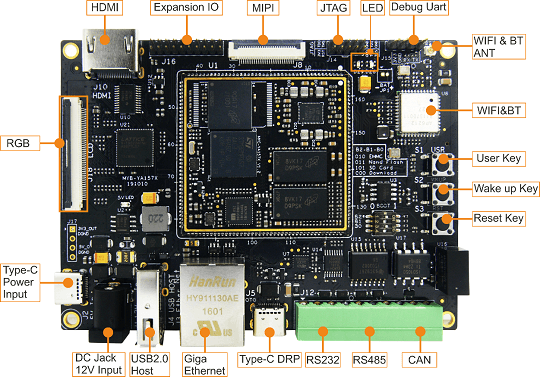Launched in March 2019, NVIDIA Jetson Nano developer kit offered an AI development platform for an affordable $99. The kit is comprised of Jetson Nano module and a carrier board, and the version I received last November ended with “A02”. Jetson Nano developer kit is now getting updated with B01 carrier board that adds an extra MIPI CSI connector and other few changes, including compatibility with NVIDIA Jetson Nano production module (with eMMC flash instead of MicroSD card). Jetson Nano developer kit-B01 specifications: B01 Jetson Nano CPU Module 128-core Maxwell GPU Quad-core Arm A57 processor @ 1.43 GHz System Memory – 4GB 64-bit LPDDR4 @ 25.6 GB/s Storage – microSD card slot Video Encode – 4K @ 30 | 4x 1080p @ 30 | 9x 720p @ 30 (H.264/H.265) Video Decode – 4K @ 60 | 2x 4K @ 30 | 8x 1080p @ 30 | 18x 720p @ 30 […]
Krescue for Khadas VIM Boards Enables Backup/Restore of eMMC flash, Access to the Terminal, and More
Sometimes things go wrong, and you need a way to recover your system, either by restoring a backup or accessing your system to check it out and hopefully fix the issue. Krescue is a minimal firmware image (21MB compressed) for Khadas VIM boards designed to do just that, and more. Some of the highlights of Krescue firmware image include: Full eMMC flash dump/backup to Micro SD card, USB, or LAN host. Restore the compressed dump (.img.gz) into an eMMC on the same device or another device Rescue shell for expert users. Shell access via UART, USB network, and Web browser You’ll find Krescue for Khadas VIM1, VIM2, VIM3 and VIM3L on Khadas website which can be flashed to a MicroSD card using balenaEtcher. You can then insert the card into your board, and boot into maskROM mode to access the menu above, and control it with the IR remote control […]
MediaTek Rich IoT SDK v20.0 Released, Pumpkin i500 SBC Announced
MediaTek Rich IoT SDK v20.0 is Available MediaTek has announced its Rich IoT SDK v20.0 is already available for the i300 and i500 chipset series. The SDK was developed in collaboration with BayLibre, the French developer of Linux and Android embedded systems software, which is also known for helping mainlining Amlogic processors to Linux. The i300A, i300B, and i500 hardware platforms are supported and the features are focused on IoT and the emerging generation of smart devices. Supported OS’es and Test Applications The Rich IoT SDK v20.0 supports Yocto 3.0 Linux and Android 10 to let third-party customers and members of the MediaTek Ecosystem test Computer Vision algorithms, AI models and custom software on top of the base layer. Updates and Maintenance The SDK is receiving updates quarterly, with security updates and patches being delivered over-the-air (OTA) on a regular basis. The chipset series has a timeline for updates to […]
Variscite Introduces i.MX 8M Mini and Nano SoM’s, Symphony Carrier Board
NXP i.MX 8M Mini and i.MX 8M Nano are lower cost and lower power variants of NXP i.M 8M processors manufactured using a 14nm FinFET process, and cutting some features such as HDMI and embedded DisplayPort, or hardware video decoder. NXP i.MX 8M Mini has been announced for over two years, so we’ve already written about many boards and systems-on-module (SoM) including Boardcon EM-IMX8M-MINI SBC, TechNexion XORE LGA SoM, or Congatec conga-SMX8-Mini SMARC 2.0 module among others. NXP i.MX 8M Nano is more recent, and we only covered a few announcements so far namely iWave Systems iW-RainboW-G34M-SM SoM and Conga-SMX8-Nano SMARC 2.0 computer-on-module. There’s now at least a third company working on a “Nano” module with Variscite announcing VAR-SOM-MX8M-NANO SoM together with a “Mini” version called VAR-SOM-MX8M-MINI, and Symphony carrier board and development kits. VAR-SOM-MX8M-MINI & VAR-SOM-MX8M-NANO Modules Both modules are part of Variscite VAR-SOM Pin2Pin family, and share the […]
$2 Wemos W600-PICO WiFi IoT Board Ships with MicroPython Firmware
Wemos has designed some great WiFi IoT boards over the last few years with products like Wemos D1 mini or Lolin32 based on Espressif Systems ESP8266 and ESP32 processors respectively. But the company has recently launched its cheapest board ever, with W600-PICO board going for just $2.10 + shipping. The board is based on Winner Micro W600 Arm Cortex-M3 WiSoC, and comes pre-loaded with MicroPython firmware. Wemos W600-PICO V1.0.0 specifications: SoC – Winner Micro W600 Arm Cortex-M3 MCU @ 80MHz with 1MB Flash Wireless Connectivity – 2.4GHz 802.11 b/g/n WiFi 4 up to 150 Mbps USB – 1x Micro USB port for power and programming (via CH340 USB to TTL chip) Expansion – 2x 10-pin headers with 15x GPIO, 9x PWM, 1x I2C, 1x SPI, 1x UART, Wake Up, Reset, 5V, 3.3V, and GND signals; 3.3V I/O voltage. Misc – Reset button Power Supply – 5V via micro USB port […]
Seeeduino XIAO is a Tiny Arduino Zero Compatible Board with Battery Support
Seeeduino XIAO is the smallest Arduino compatible board from SeeedStudio’s Seeduino family. Measuring just 23.5×17.5 mm, the board is equipped with Microchip SAMD21 Arm Cortex-M0+ microcontroller and exposes various digital and analog I/Os. Seeduino XIAO specifications: MCU – Microchip SAMD21G18 ARM Cortex-M0+ microcontroller at up to 48MHz with 256KB Flash,32KB SRAM USB – 1x USB type C port for power and programming Expansion I/Os 2x 7-pin headers with 11x analog inputs, 11x digital I/Os, 1x DAC, SPI, UART, and I2C 3.3V I/O voltage (not 5V tolerant) Misc – 1x user LED, power LED, 2x LEDs for serial port downloading, Reset pads, SWD pads, 32.768KHz crystal oscillator Power Supply – 5V via USB-C power, power pads (VIN/GND) for battery Dimensions – 23.5×17.5×3.5 mm All main components are placed under a shield, but there may be some charger chip (nope: see comments) as the company explains the board supports batteries via the […]
Arduino Portenta H7 STM32H7 Cortex- M7/M4 Industrial Board Runs Arduino Code, Python and JavaScript
Arduino is now at CES 2020 promoting its Arduino Pro all-in-all IoT solution for professionals with the Arduino Pro IDE, Arm Pelion IoT platform for device management, and a new Portenta industry-grade board family starting with Arduino Portenta H7 board powered by STMicro STM32H7 dual-core Arm Cortex-M7/M4 microcontroller. Arduino Portenta H7 Specifications: Microcontroller – STMicro STM32H747XI Cortex-M7 @ 480 MHz + M4 @ 200 MHz MCU with 2MB dual-bank Flash memory, 1 MB RAM, Chrom-ART graphical hardware accelerator System Memory – 2MB SDRAM (upgradeable up to 64MB) Storage – 16MB QSPI NOR Flash (Upgradeable up to 128MB) Connectivity 2.4GHz WiFi 802.11b/g/n up to 65 Mbps and Bluetooth 5.1 BR/EDR/LE via Murata 1DX module On-board 10/100M PHY Video I/F – MIPI DSI & 8-bit camera interfaces via 80-pin expansion connector, DisplayPort over USB-C port USB – 1x USB 2.0 Type-C port for power (PD), programming, and DisplayPort output I/Os Arduino MKR […]
MYIR Launches SoM & Development Board based on STM32MP1 Microprocessor
MYIR, the Chinese based company that has developed several ARM-based hardware solutions, has introduced a new SoM powered by the ST’s STM32MP1 microprocessor called the MYC-YA157C CPU Module with an accompanying development board known as the MYD-YA157C development board. Early last year, STMicro announced the introduction of the STM32MP1, the first STM32 MPU (Microprocessor Unit) that features one or two Arm Cortex-A7 cores running Linux, as well as an Arm Cortex-M4 real-time core making it possible to use previous STM32 codes on the new unit. Although, less than 1-year-old, the STM32MP1 microprocessor has since be deployed on a couple of development boards like the STMicro’s own discovery kits and evaluation platform, Emtrion emSBC-Argon, PanGu single-board computer, and even octavo systems unveiled the OSD32MP15x system-in-package. One primary observation with these other developments boards is their relatively steep cost, and something MYIR aims to address. MYiR MYC-YA157C STM32MP1 CPU Module The MYC-YA157C […]


